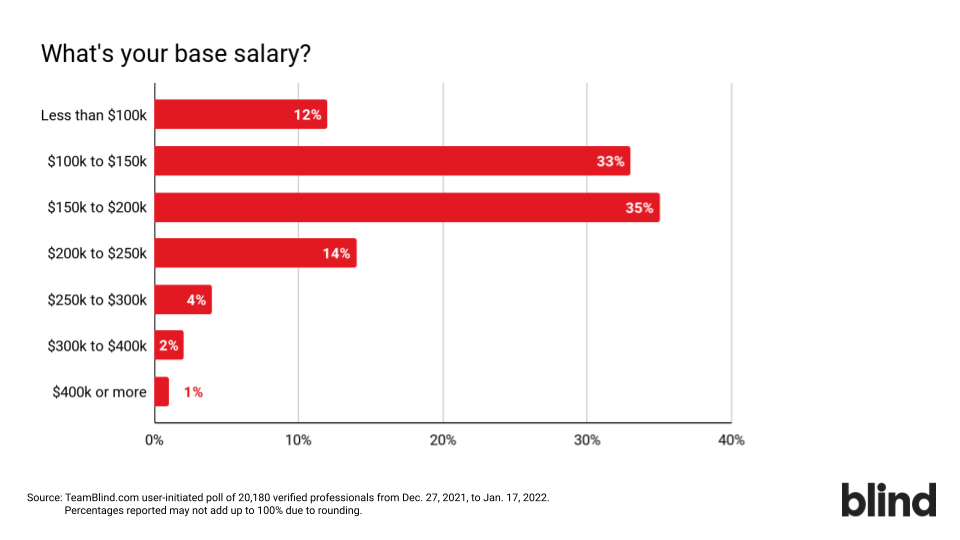Here's How Much Engineers and Technologists Really Earn

Read them, and you might just weep.
Many of us have long understood a career in the technology industry can be lucrative, especially for software engineers who can easily command six-figure total compensation packages to as much as $1.5 million or more.
However, people who work in tech often earn their high pay because of the sky-high performance of their company’s stock, owing to the stock-based compensation many of them receive.
Professionals on the professional social network Blind set out to understand what the typical base salary is among tech workers.
According to a user-created poll, the median base salary of a user on Blind is between $150,000 to $200,000.

In an “ask me anything” session on Blind, a technical leader at Google explained that directors of engineering and “principal” engineers at top tech companies, such Amazon, Facebook-parent Meta and Google, can earn base salaries of $300,000 or more. The Google director hosting the informal interview said they earned a base salary of $400,000.
One in 14 verified professionals on Blind reported earning a base salary of $250,000 or more.
Pay packages of $250,000 or more are not uncommon at Netflix, according to a verified professional at the video-streaming giant, which prefers to hire more experienced professionals and does not typically offer any stock-based compensation.
How are salaries determined?
Salaries are typically determined by a company’s total rewards strategy, which is the combination of compensation, benefits, perks and professional development opportunities it expects to offer.
Employers generally set salary ranges for each position based on a professional’s responsibility or job function, level or scope. The salary range sets a floor or minimum rate, a cap or maximum rate, and some levels in between, which often serve as the basis for raises or pay adjustments.
Salaries account for the “market” pay rate, or what other companies in similar or adjacent regions or industries might pay, plus factors to account for a professional’s education, relevant years of experience or specialized skills or credentials.
Companies may also set a budget or benchmark for pay. For example, a company seeking to hire aggressively and stand out as a top employer might decide to pay more than others or benchmark their compensation at a certain percentile.
Methodology
In a user-created poll on Blind, 20,180 verified professionals self-reported their base salary between Dec. 27, 2021, to Jan. 17, 2022. Percentages reported may not add up to 100% due to rounding.